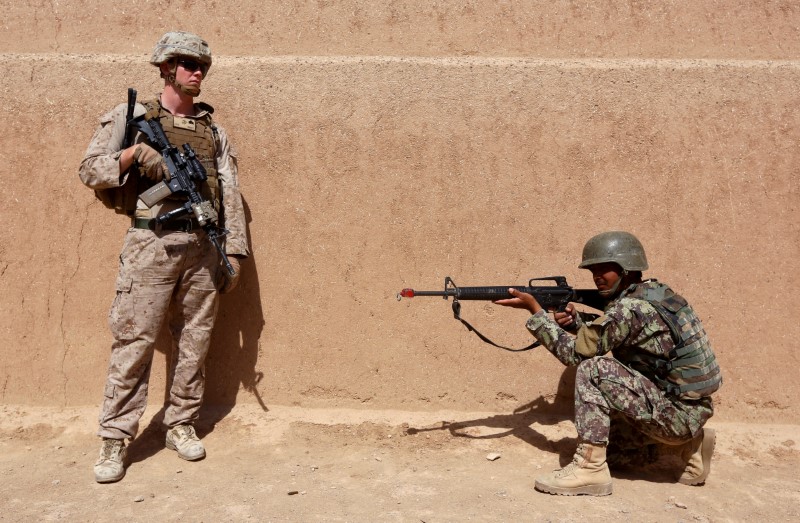By Idrees Ali
WASHINGTON (Reuters) - U.S. Defence Secretary Jim Mattis has criticized Pentagon officials for wasting as much as $28 million by making a questionable choice of forest camouflage-patterned uniforms for Afghan National Army soldiers.
The uniform pattern was selected without evaluating its effectiveness when only 2.1 percent of Afghanistan is covered by forests, the U.S. government's top watchdog on Afghanistan said in a report last month.
The Afghan minister of defence at the time "liked the woodland, urban and temperate patterns," the report by the Special Inspector General for Afghanistan Reconstruction (SIGAR) said.
It potentially cost up to an additional $28 million dollars between 2008 and 2017, the watchdog said.
In a memo sent out to senior Pentagon officials on Friday and seen by Reuters, Mattis said the SIGAR report was an example of a "complacent mode of thinking."
"Cavalier or casually acquiescent decisions to spend taxpayer dollars in an ineffective and wasteful manner are not to recur," Mattis wrote.
"Rather than minimize this report or excuse wasteful decisions, I expect all DoD (Department of Defence) organizations to use this error as a catalyst to bring to light wasteful practices - and take aggressive steps to end waste," Mattis wrote.
The U.S. House of Representatives Armed Services Committee has a hearing scheduled for Tuesday that will look at Pentagon equipment and uniform procurement in Afghanistan and Iraq.
President Donald Trump is weighing sending more U.S. troops to Afghanistan to reverse the gains made by Taliban militants and support the fight against Islamic State and crafting a broader South Asia strategy.
In a sign of the deteriorating security situation in Afghanistan, a Taliban suicide attacker detonated a car bomb in the western part of Kabul on Monday, killing up to 35 people and wounding more than 40.
Nearly $110 billion has been appropriated in Washington for reconstruction in Afghanistan since 2002, when U.S. forces drove the Taliban from power for harbouring militants from al Qaeda, which carried out the Sept. 11 attacks.

In 2014, SIGAR said that more had been spent in current dollar terms on reconstruction in Afghanistan than had been spent on the Marshall Plan, which helped more than a dozen European countries after World War Two.